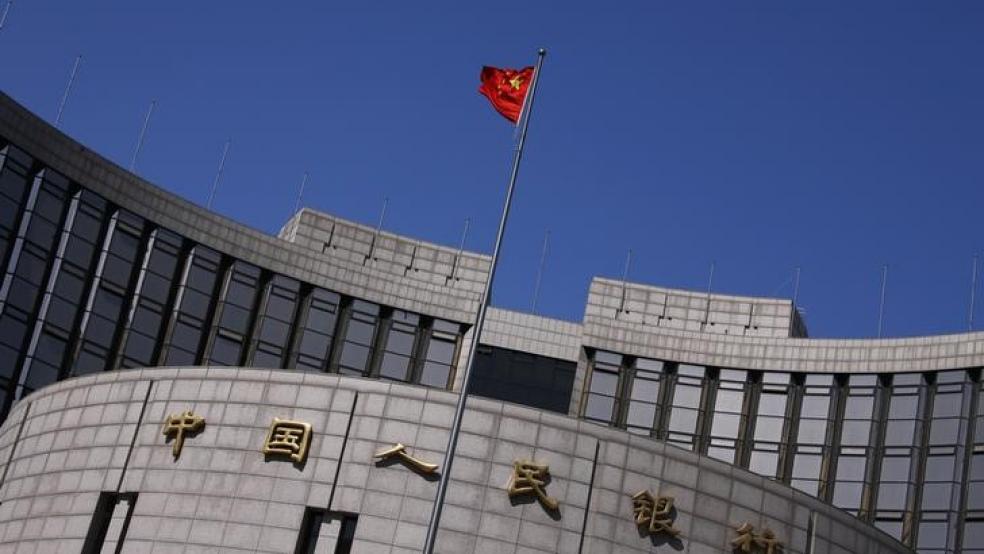The central bank was responding to Reuters' queries about how the People's Bank of China set limits around banks' cross-border yuan account financing.
Earlier this month, the PBOC said in a short statement on its Weibo microblog account that the upper limit on Chinese commercial banks' cross-border financing is determined by their outstanding deposits and a counter-cyclical factor, which was 3 percent currently.Under central bank rules issued in 2009, Chinese commercial banks are allowed to provide yuan account financing for selected overseas banks, with upper limits on it set at 1 percent of their outstanding deposits. That implied a counter-cyclical coefficient of 1 percent, the central bank said, adding that this was raised to 3 percent in July 2013 in line with China's economic and financial conditions, and that has been in place since then.The counter-cyclical management of cross-border yuan financing will help curb "volatile market sentiments and large-scale 'herd' effects caused significant fluctuations in cross-border capital flows", the PBOC said in the statement.This practice is in line with macro-prudential policies recommenced by the Financial Stability Board (FSB) and the International Monetary Fund (IMF), the central bank said.The adjustment aims to "further facilitate cross-border trade and investment, support the healthy development of cross-border renminbi (yuan) business and improve cross-border financing of commercial banks", the central bank said.A slide in the yuanChina central bank: Cross-border yuan financing settings meant to curb 'herd' effects

Thomas White



